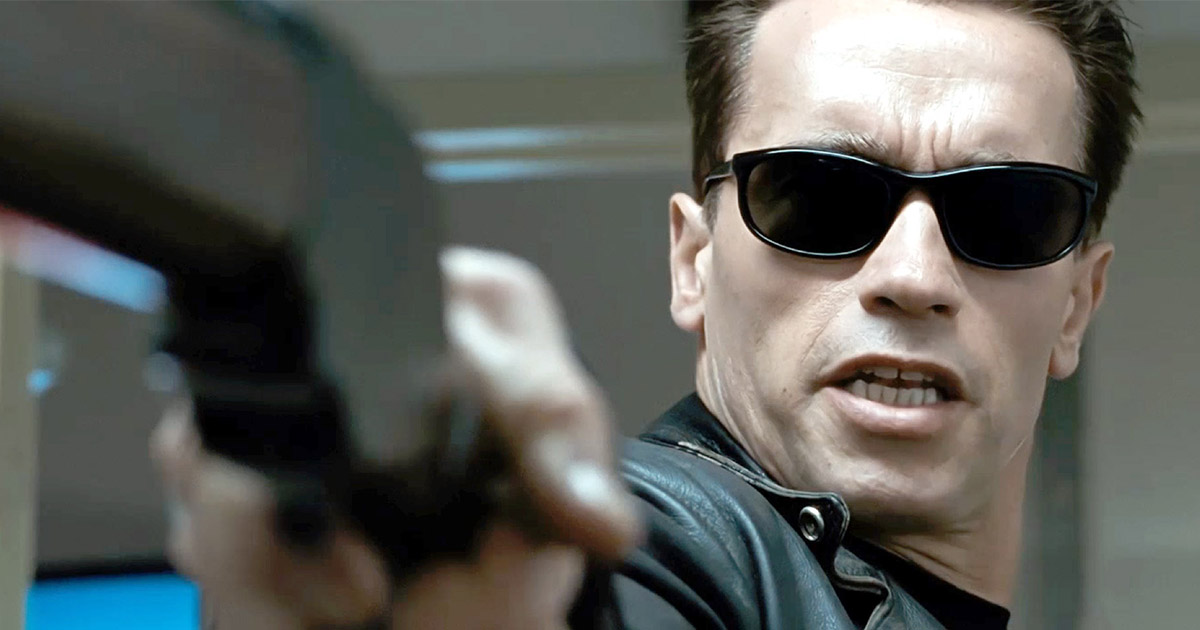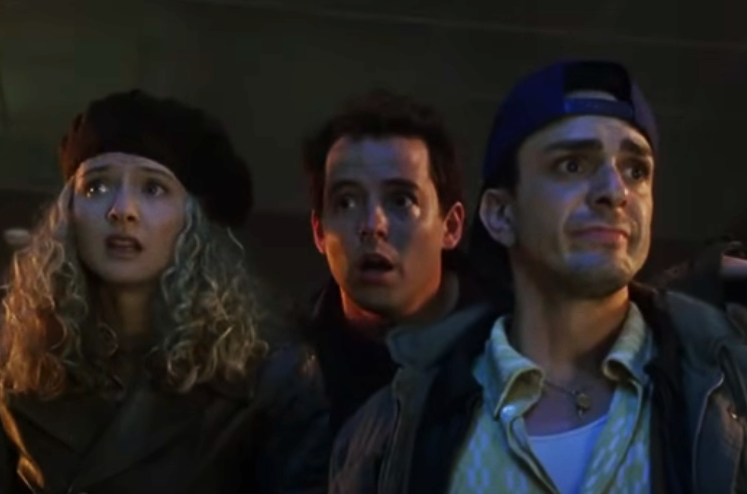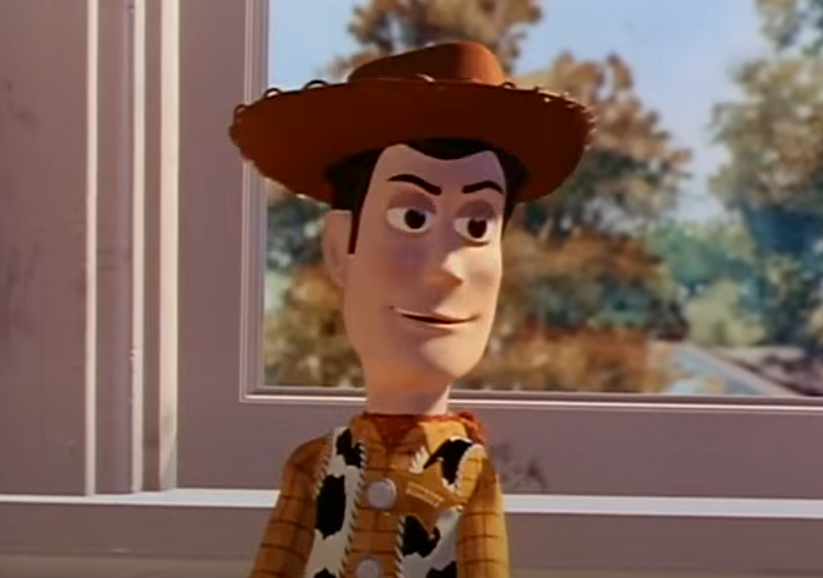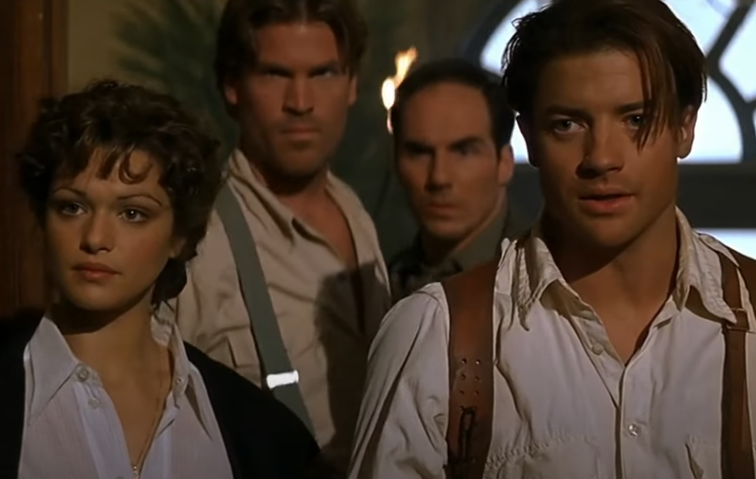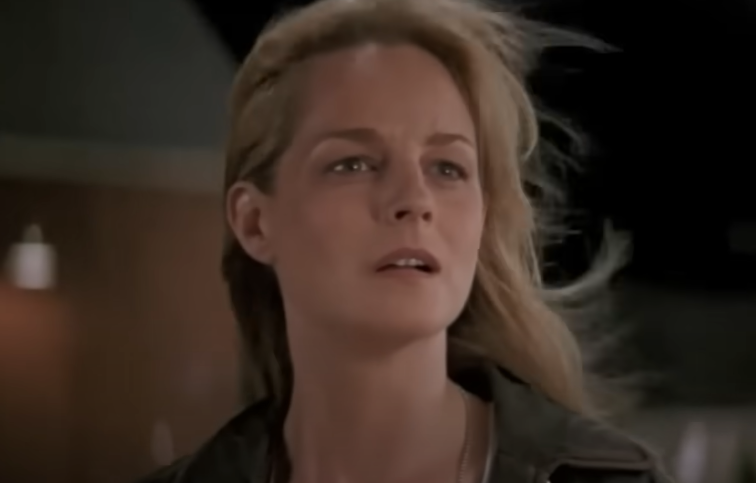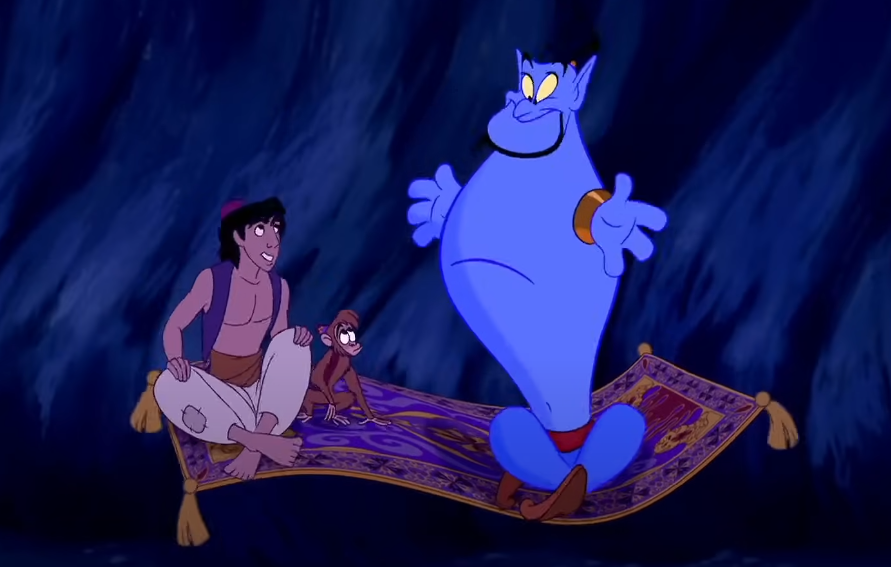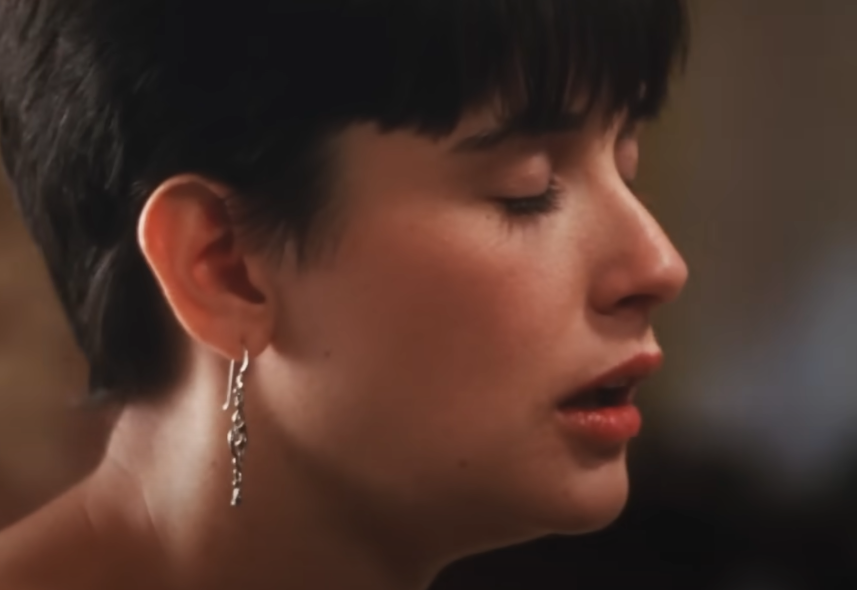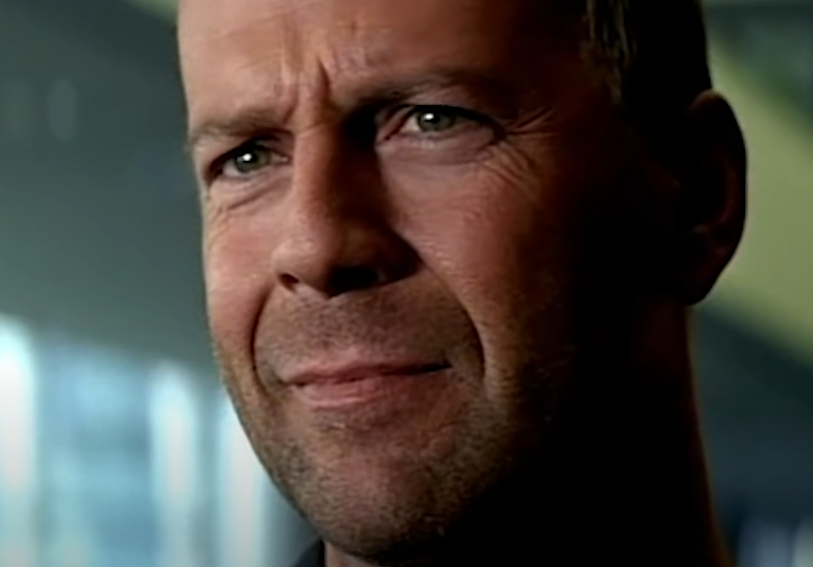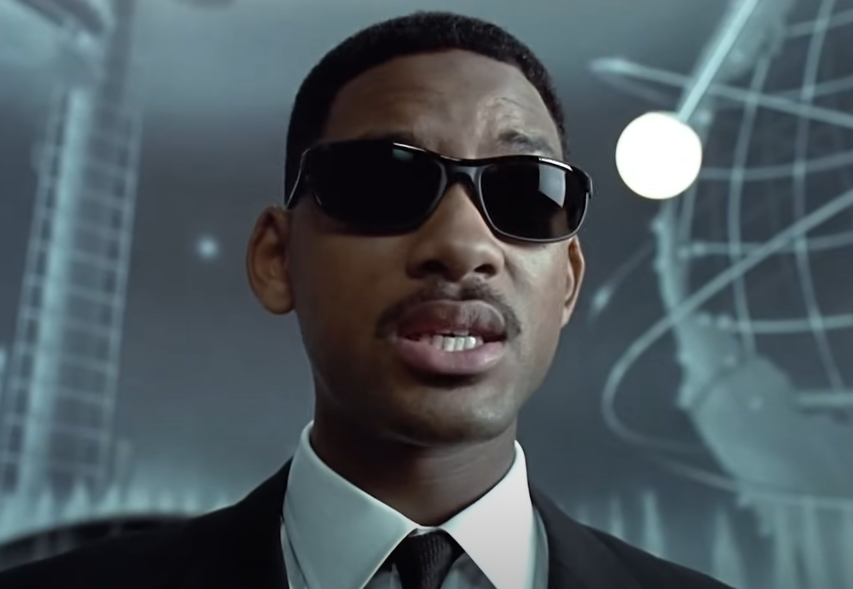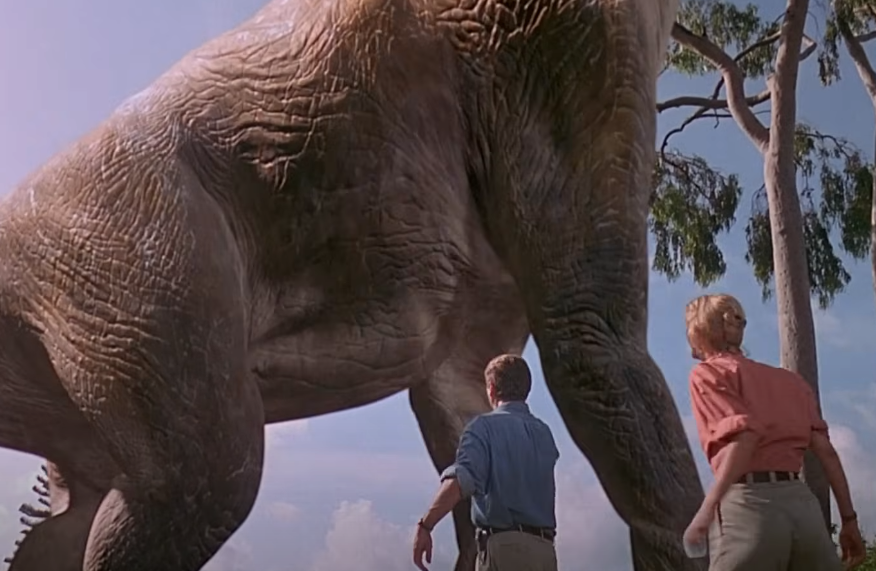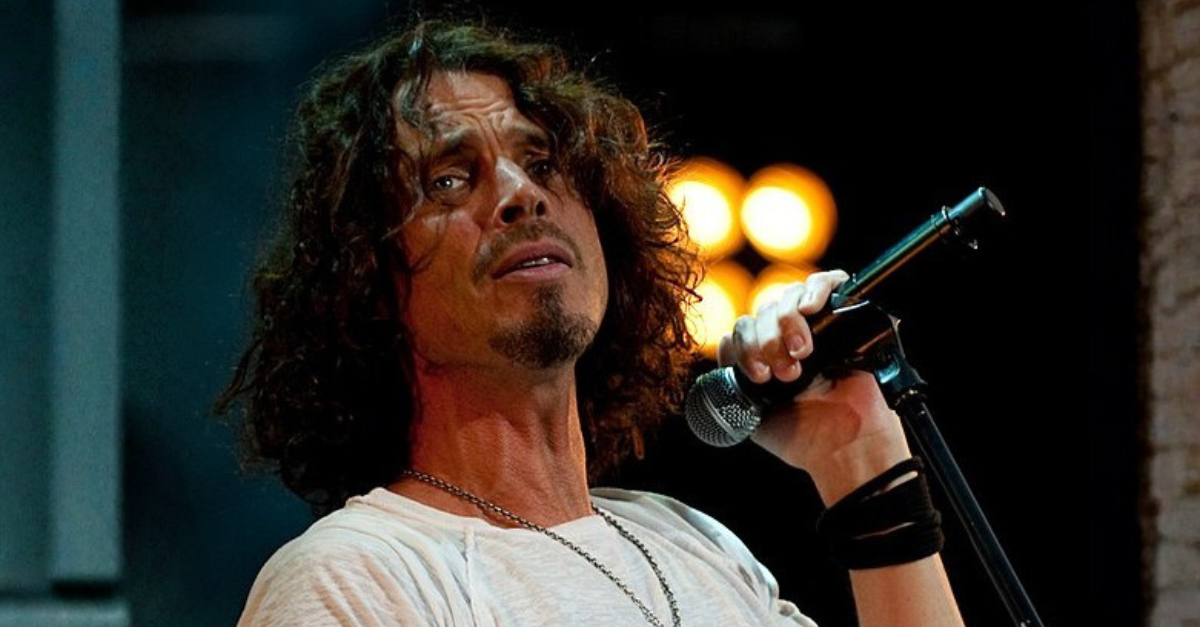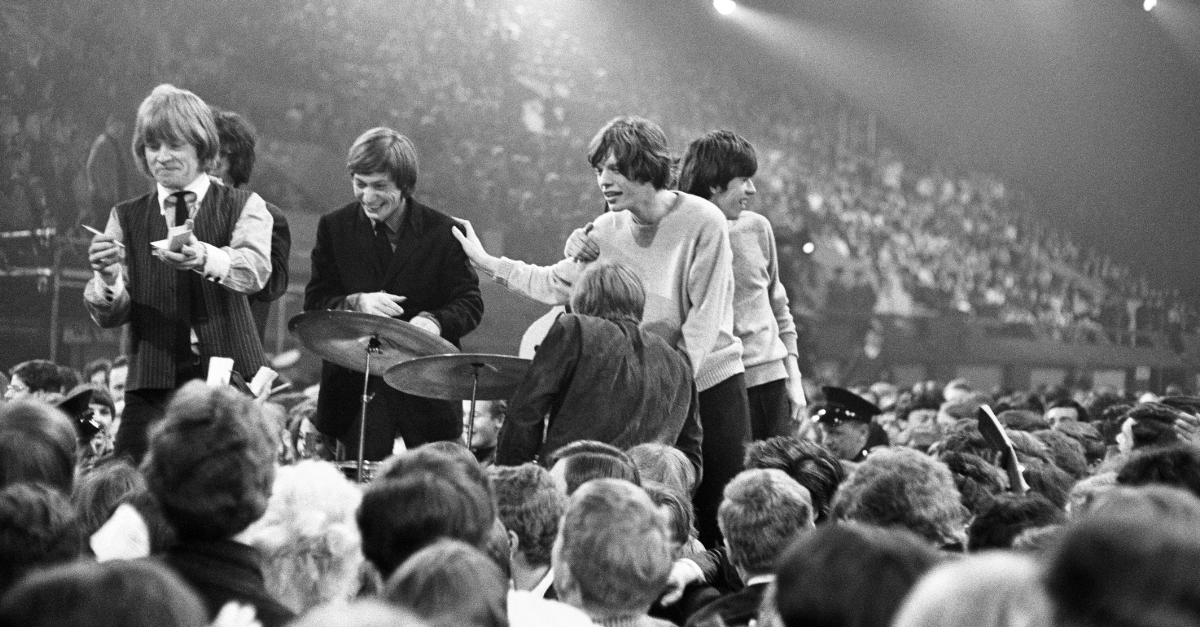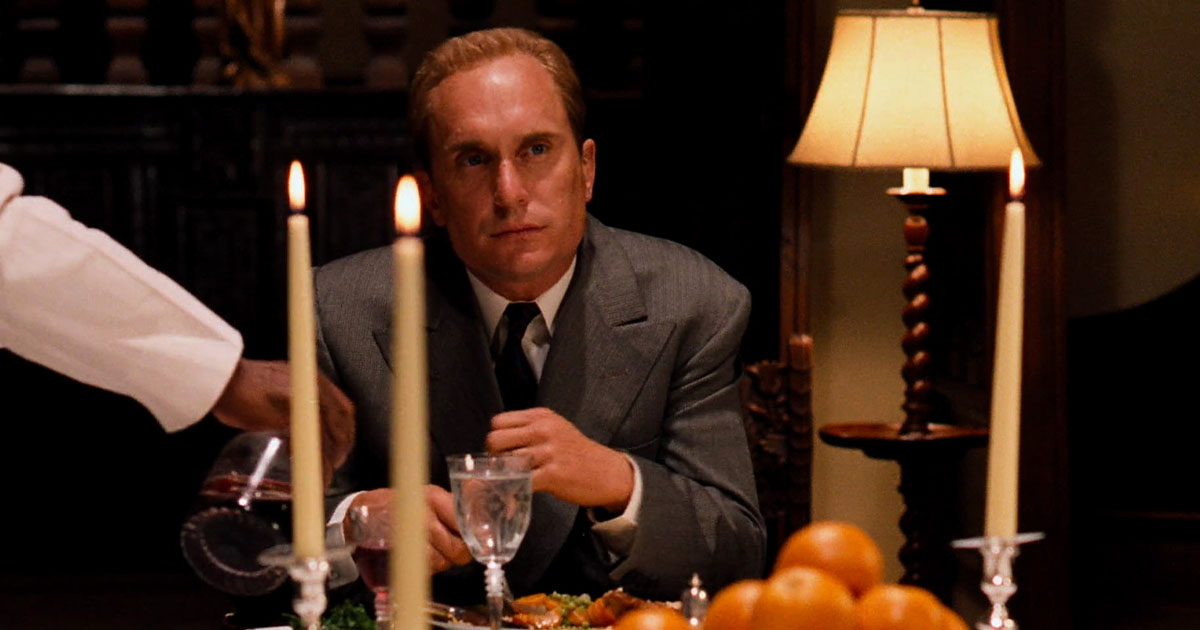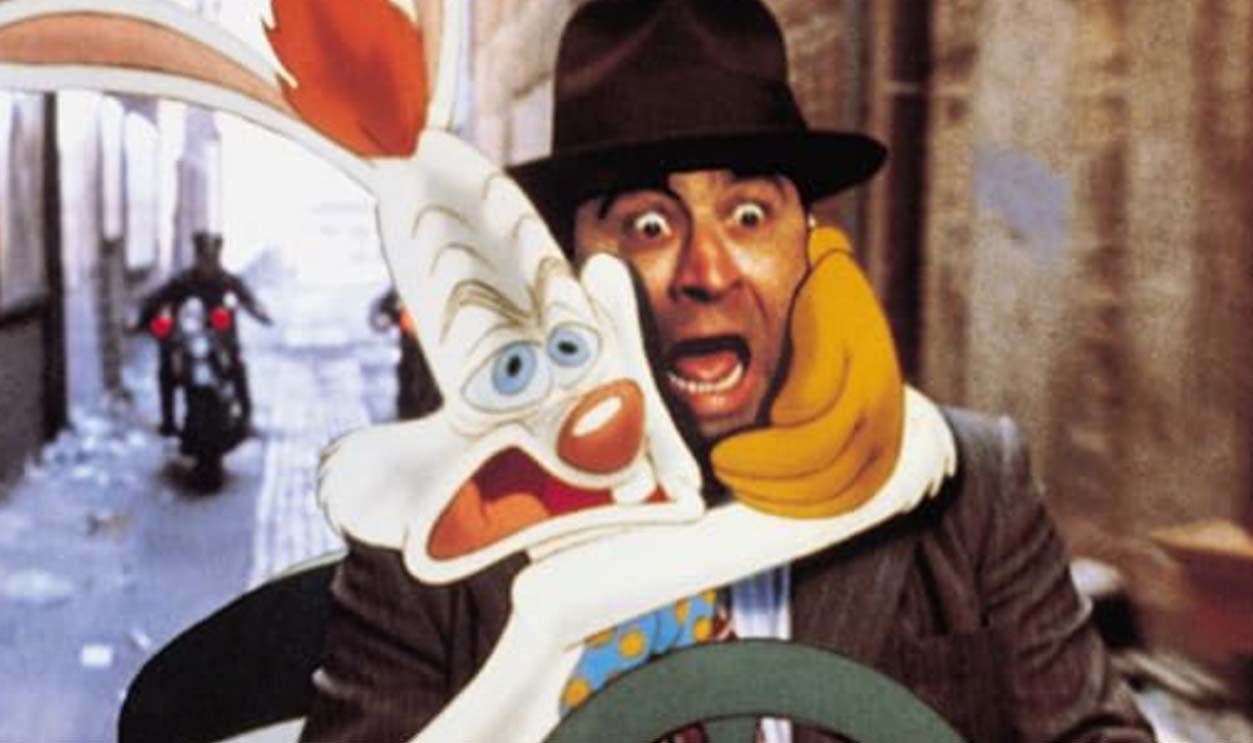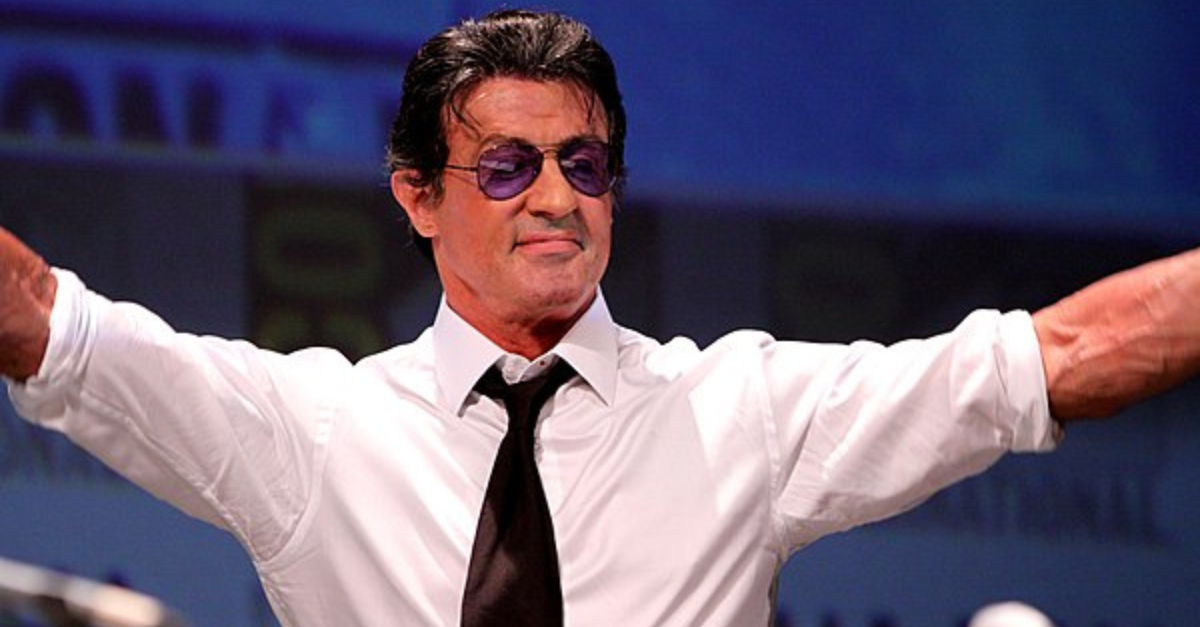The 90s: A Blockbuster Decade
The cinema of the 90s was far-reaching artistically and on a mass scale. The decade was notable for its blockbusters, and the different genres of films that achieved that status: animation, historical reconstructions, romantic comedies, and more. Let’s examine the biggest-grossing films of the 90s. Some of the names on the list may surprise you! (Figures are given in US dollars, not adjusted for inflation).
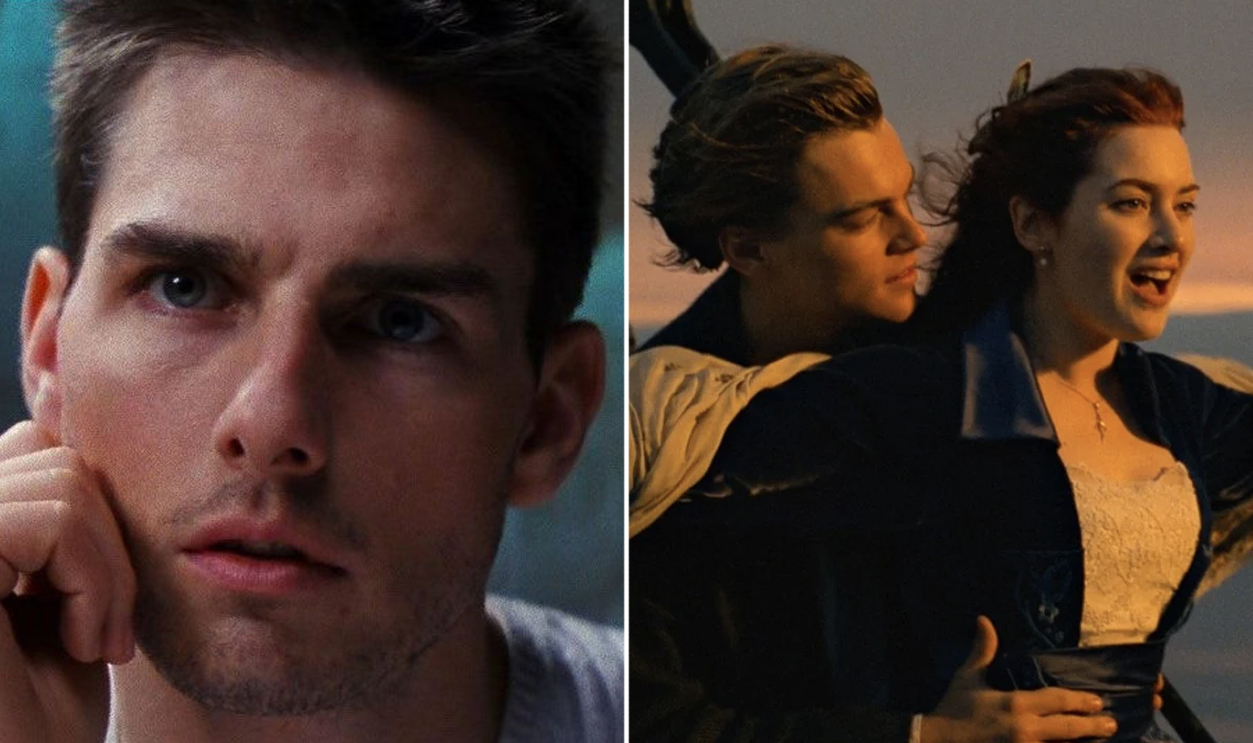
Apollo 13 (1995)
Box Office Revenue: $355.2 million
This Ron Howard production on the miraculous recovery of the aborted 1970 moon mission was lauded for its technical and historical accuracy. In addition to Tom Hanks, the film featured several other 90s stalwarts: Kevin Bacon, Ed Harris, Gary Sinise, and Bill Paxton.
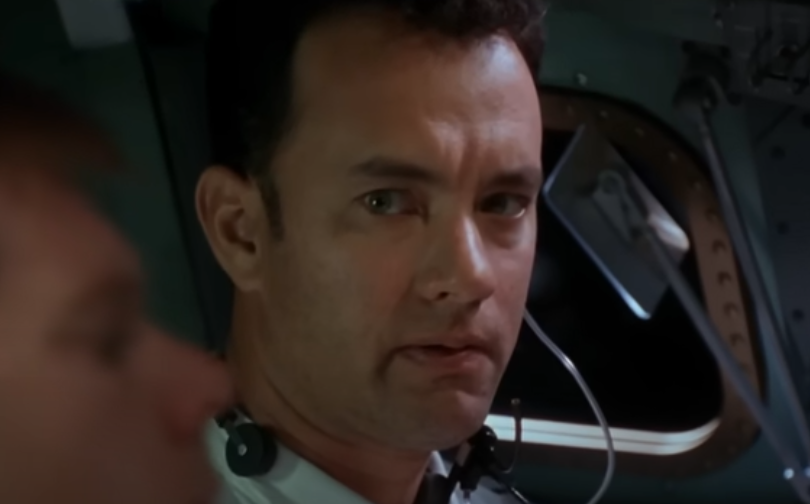 Imagine Entertainment, Apollo 13 (1995)
Imagine Entertainment, Apollo 13 (1995)
American Beauty (1999)
Box Office Revenue: $356.3 million
Sam Mendes’ tale of suburban angst and family dysfunction claimed several Academy Awards, including Best Film, Best Director (Mendes), and Best Actor (Kevin Spacey).
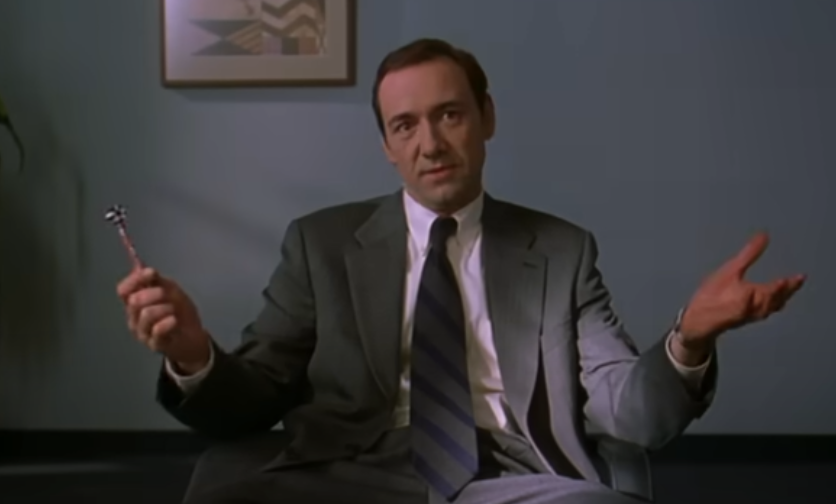 DreamWorks, American Beauty (1999)
DreamWorks, American Beauty (1999)
The World Is Not Enough (1999)
Box Office Revenue: $361.8 million
Pierce Brosnan returned for a third stint as 007 to thwart a plot to set off a nuclear explosion on a Russian submarine. Co-stars included Denise Richards and Sophie Marceau.
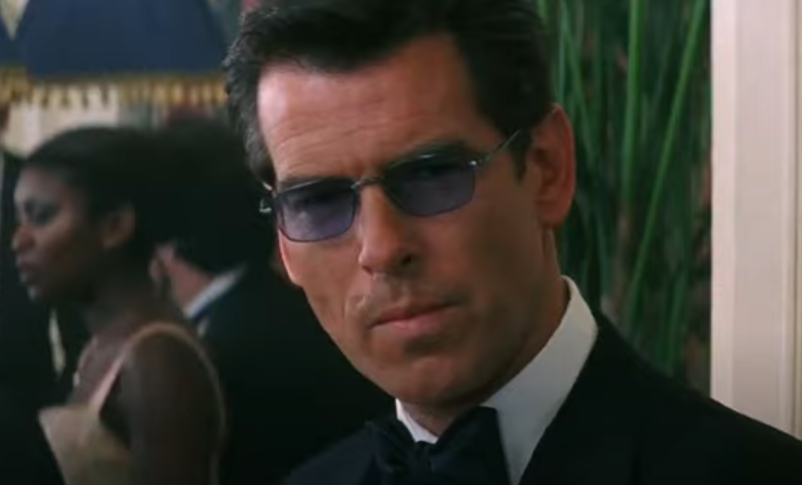 Eon Productions, The World Is Not Enough (1999)
Eon Productions, The World Is Not Enough (1999)
A Bug’s Life (1998)
Box Office Revenue: $363.3 million
Conflict between a colony of ants and a predatory gang of grasshoppers form the basis of this animated feature. The Pixar production built on the success of their first film, Toy Story (1995).
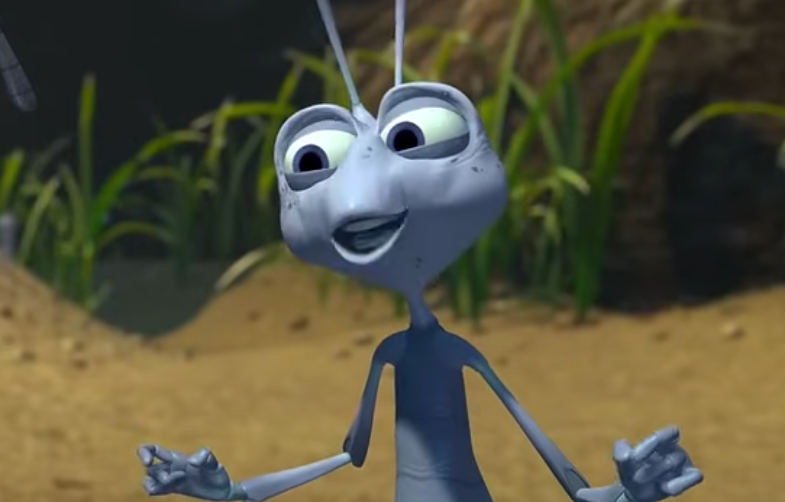 Pixar Animation Studios, A Bug's Life (1998)
Pixar Animation Studios, A Bug's Life (1998)
Notting Hill (1999)
Box Office Revenue: $363.9 million
Julia Roberts and Hugh Grant were at peak popularity for this romantic comedy set in the famous London neighborhood. The film was directed by Roger Michell with script by Richard Curtis.
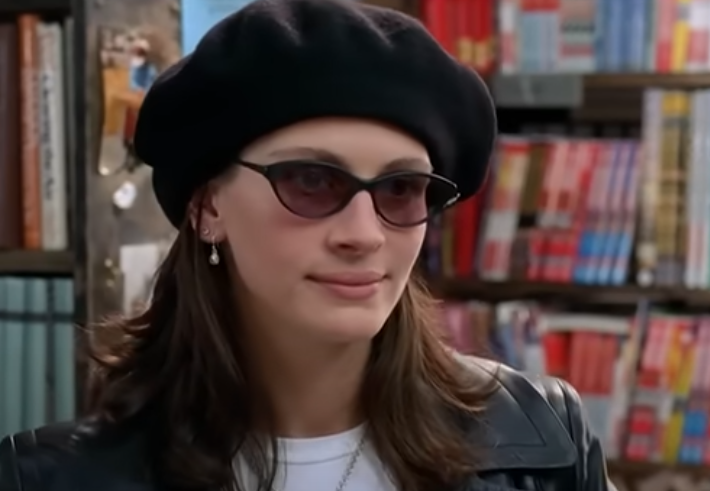 Working Title Films, Notting Hill (1999)
Working Title Films, Notting Hill (1999)
Home Alone 2: Lost In New York (1992)
Box Office Revenue: $365.1 million
Though this sequel to the John Hughes classic did not garner the acclaim of the original, Home Alone 2 was nevertheless a resounding success at the box office.
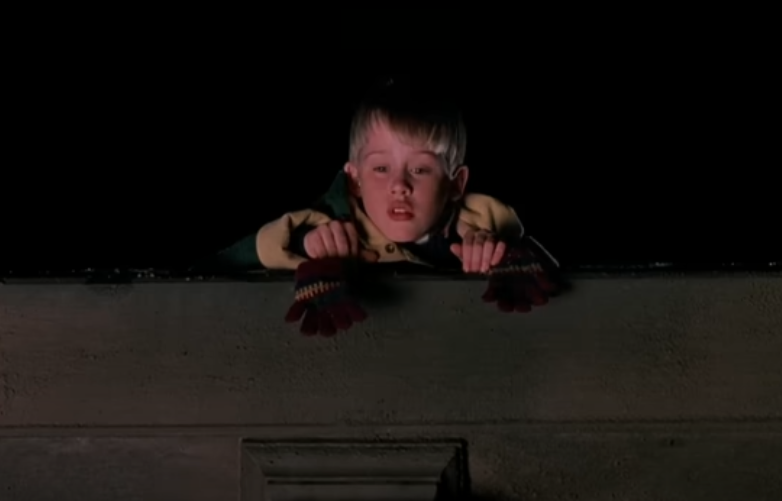 Twentieth Century, Home Alone 2: Lost in New York (1992)
Twentieth Century, Home Alone 2: Lost in New York (1992)
Die Hard With A Vengeance (1995)
Box Office Revenue: $366.1 million
The Die Hard franchise’s third installment features Bruce Willis teaming up with Samuel L Jackson to stop bad guy Jeremy Irons. Despite its success and action-packed plot, 12 years would pass before another Die Hard movie would be made.
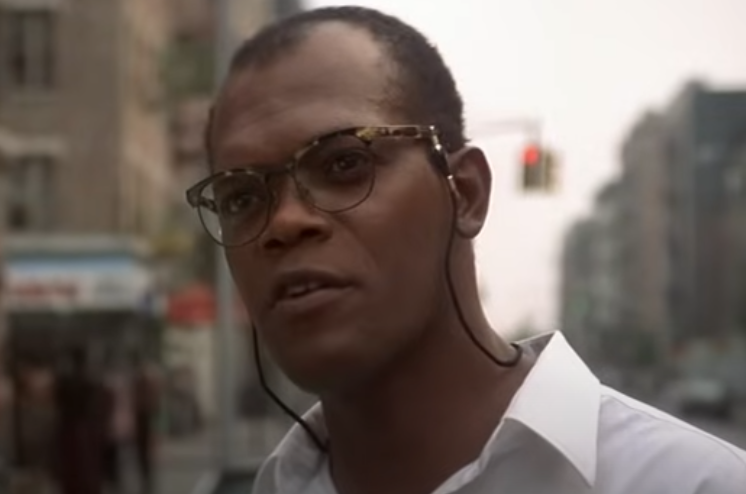 Twentieth Century, Die Hard with a Vengeance (1995)
Twentieth Century, Die Hard with a Vengeance (1995)
The Fugitive (1993)
Box Office Revenue: $368.9 million
The screen presence of Harrison Ford and Tommy Lee Jones, along with a fast-paced storyline, led to the success of this remake of the popular 60s TV show. Jones won the Oscar for Best Supporting Actor for his performance as the relentless federal Marshal Philip Gerard.
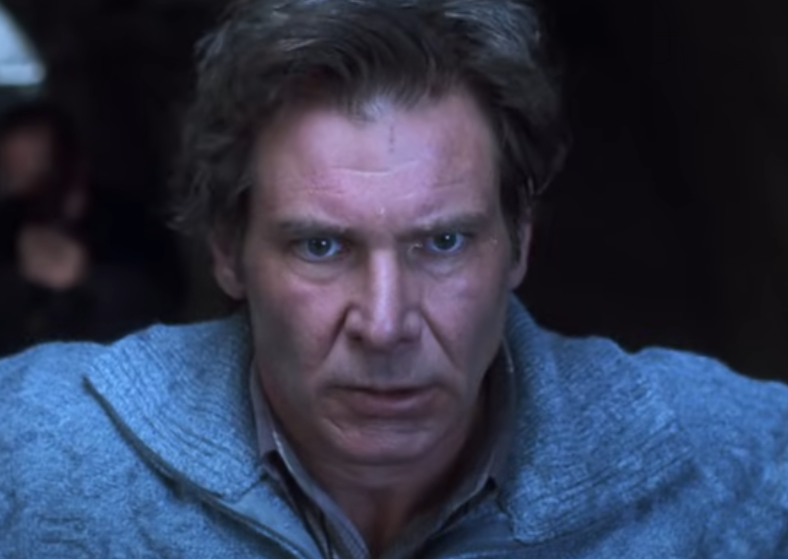 Warner Bros., The Fugitive (1993)
Warner Bros., The Fugitive (1993)
There’s Something About Mary (1998)
Box Office Revenue: $369.9 million
This hit comedy by Peter and Bobby Farrelly took the simple premise of a beautiful woman being pursued by several hapless men, and spun it into comedy gold. Cameron Diaz received accolades as the title character of the film, which remains near the top of several lists of the greatest comedies of all time.
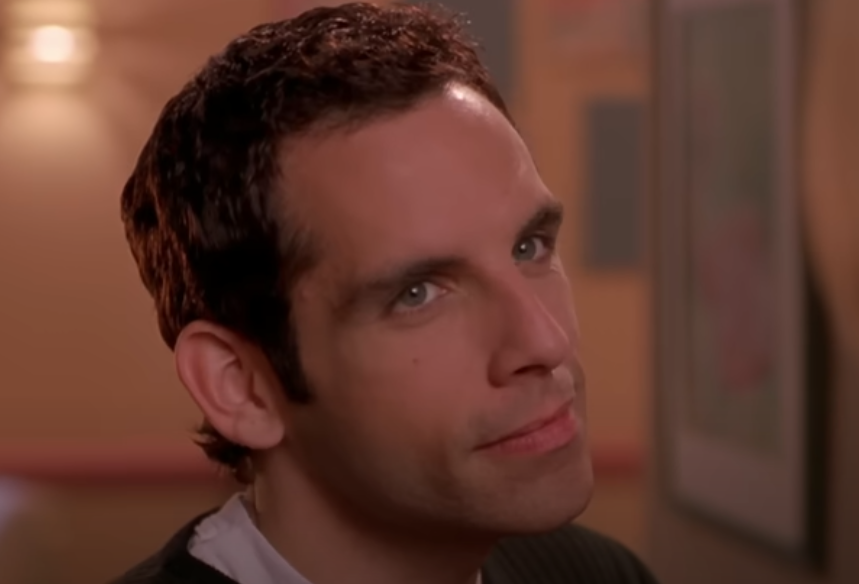 Twentieth Century, There's Something About Mary (1998)
Twentieth Century, There's Something About Mary (1998)
True Lies (1994)
Box Office Revenue: $378.8 million
Arnold Schwarzenegger and Jamie Lee Curtis co-starred in this memorable action film directed by James Cameron. The movie mixed in some humorous moments and was not without controversy for some of its portrayals. It was the third-highest grossing movie of the year, behind Forrest Gump and The Lion King.
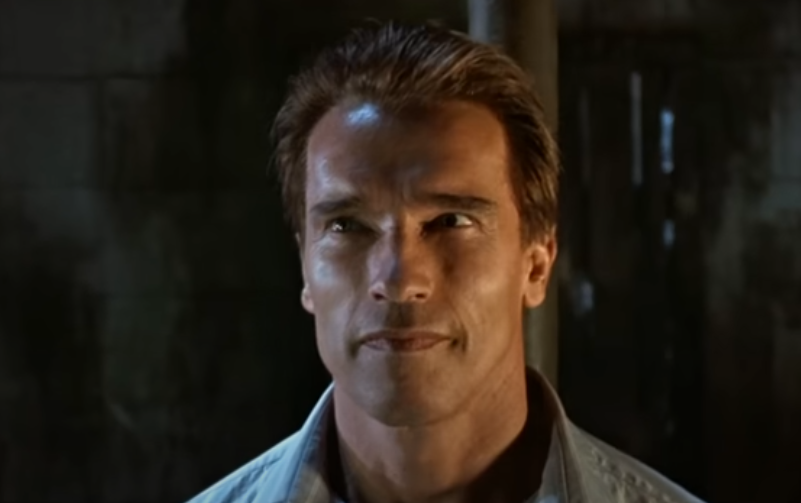 Twentieth Century, True Lies (1994)
Twentieth Century, True Lies (1994)
Godzilla (1998)
Box Office Revenue: $379 million
This US reboot of the Japanese favorite featured the giant radioactive reptile attacking New York. The film’s producers replaced the familiar burly form of the traditional monster with a sleeker and more lizard-like version, a change that was not universally accepted by audiences. Godzilla attracted great interest but received mostly negative reviews.
Robin Hood: Prince Of Thieves (1991)
Box Office Revenue: $390.5 million
Kevin Costner played the lead role in this new version of an old story, while Alan Rickman earned critical praise as the Sheriff of Nottingham in a film that garnered decidedly mixed reviews. The theme song by Bryan Adams, “(Everything I Do) I Do It For You”, was a major radio hit at the time.
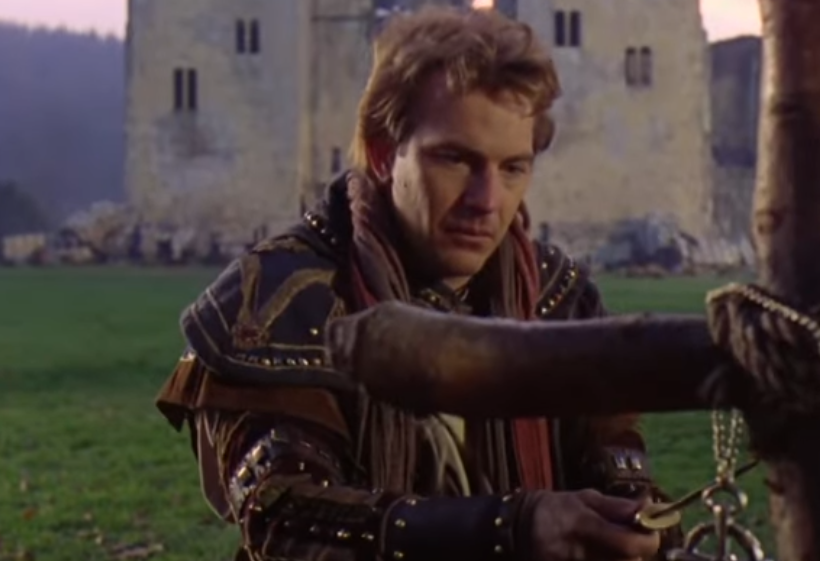 Warner Bros., Robin Hood: Prince of Thieves (1991)
Warner Bros., Robin Hood: Prince of Thieves (1991)
Toy Story (1995)
Box Office Revenue: $394.4 million
The first entirely computer-animated film, Toy Story was also the first major release by Pixar Studios. It vastly exceeded all expectations by becoming one of the most successful movies of the year, and is now widely regarded as a milestone in cinematic history for its innovations.
The Bodyguard (1992)
Box Office Revenue: $411 million
A movie possibly known more for its soundtrack than its story, The Bodyguard featured the screen debut of Whitney Houston co-starring Kevin Costner. Dismissed by critics, the film’s star power and romantic premise was still a major draw for audiences.
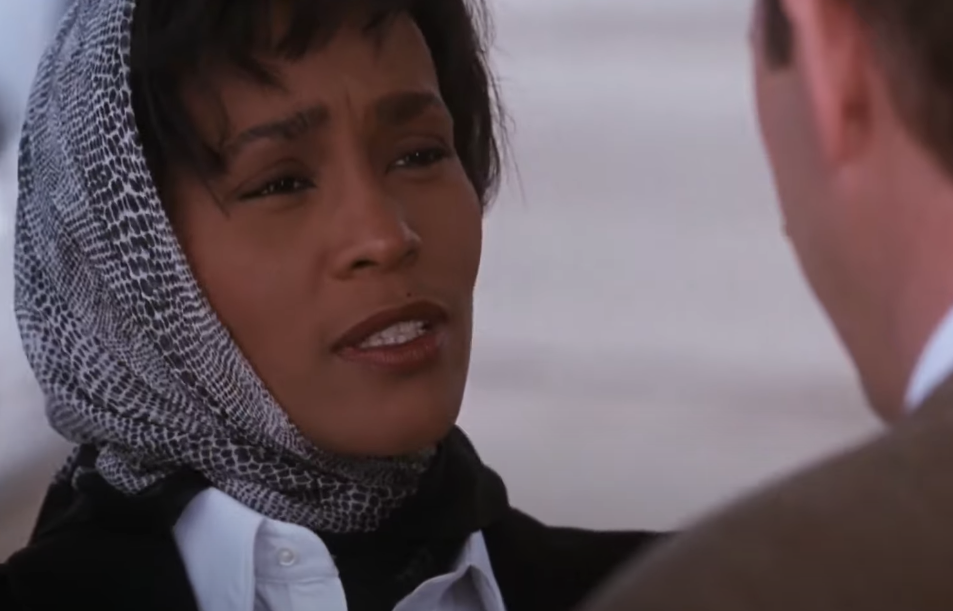 Warner Bros., The Bodyguard (1992)
Warner Bros., The Bodyguard (1992)
The Mummy (1999)
Box Office Revenue: $417.6 million
The Mummy starred Brendan Fraser and Rachel Weisz as adventurers who accidentally activate the curse of a long-dead mummy. While the film drew unfavorable comparisons to the Indiana Jones series, its special effects drew praise. Only Star Wars: The Phantom Menace had a bigger box office that year.
Dances With Wolves (1990)
Box Office Revenue: $424.2 million
Kevin Costner was in his heyday as director and main actor in this iconic portrayal of the Lakota Sioux in the Old West. The film took seven Academy Awards, including Best Picture and Best Director.
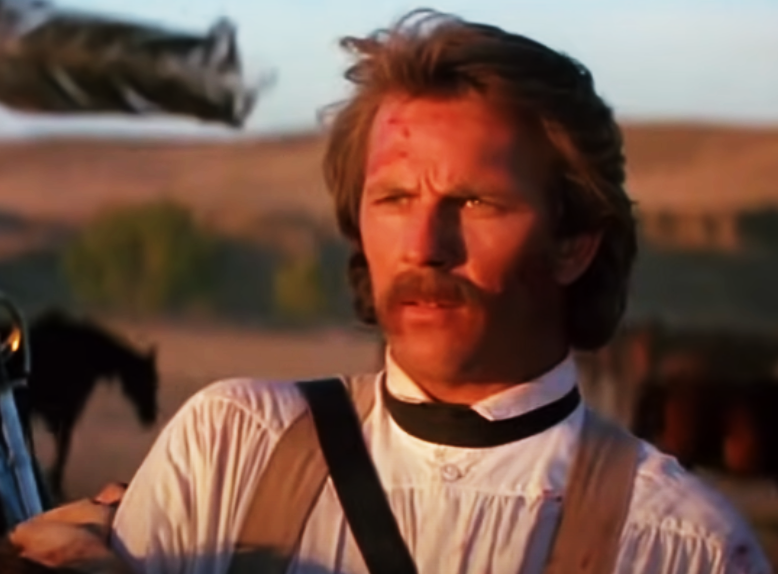 Majestic Films International, Dances with Wolves (1990)
Majestic Films International, Dances with Wolves (1990)
Beauty And The Beast (1991)
Box Office Revenue: $425 million
This Disney production was a combination of hand-drawn and computer-generated animation. Lauded for its soundtrack and family-friendly content, it is one of the few animated films ever nominated for an Academy Award for Best Picture.
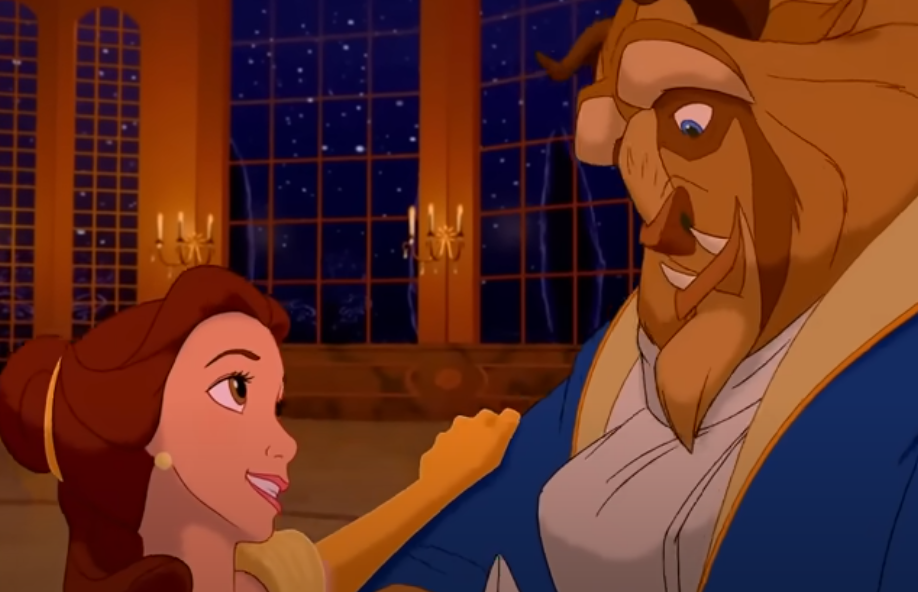 Walt Disney, Beauty and the Beast (1991)
Walt Disney, Beauty and the Beast (1991)
Mrs. Doubtfire (1993)
Box Office Revenue: $441.3 million
Robin Williams starred in this hit comedy about a divorced father who cross-dresses as the family housekeeper so he can spend more time with his kids. Sally Field and Pierce Brosnan co-starred in the film, which unsurprisingly took home several awards for best makeup.
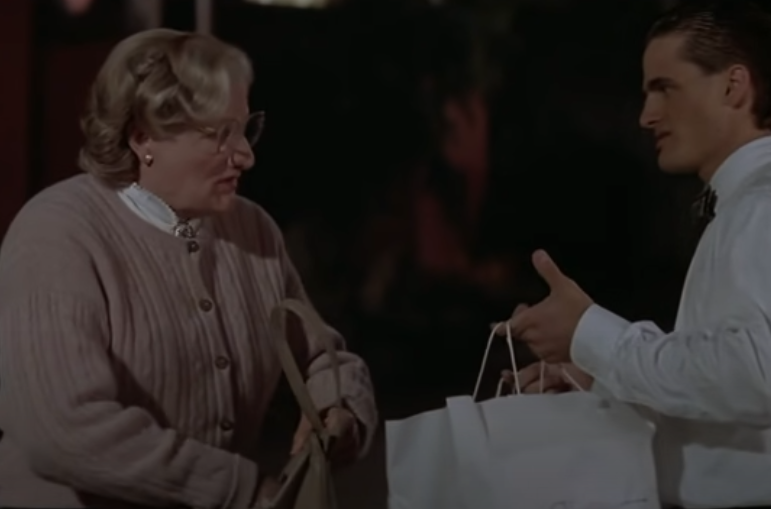 Twentieth Century, Mrs. Doubtfire (1993)
Twentieth Century, Mrs. Doubtfire (1993)
Tarzan (1999)
Box Office Revenue: $448.2 million
As with their previous 90s successes (Beauty and the Beast, The Lion King), Disney relied on a combination of hand-drawn figures and computer-generated images to retell this classic tale of the jungle. The film was praised for its soundtrack and stellar voice acting.
Mission: Impossible (1996)
Box Office Revenue: $457.7 million
Tom Cruise was the star of this revival of the 60s TV show, and in the process, helped launch a new film franchise synonymous with fast-paced action and adventure. The chase scenes, stunts, gadgets, and shifting global locales made the movie (and its sequels) a massive success.
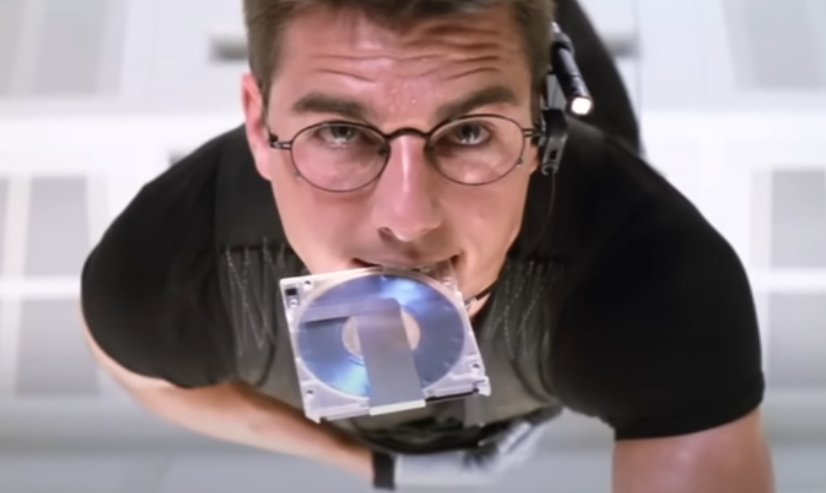 Paramount, Mission: Impossible (1991)
Paramount, Mission: Impossible (1991)
Pretty Woman (1990)
Box Office Revenue: $463.4 million
The likeability of Julia Roberts and her chemistry with co-star Richard Gere were the main ingredients of this romantic comedy’s incredible popularity. By the end of 1990, Pretty Woman became the fifth-highest grossing film of all time (up to that point).
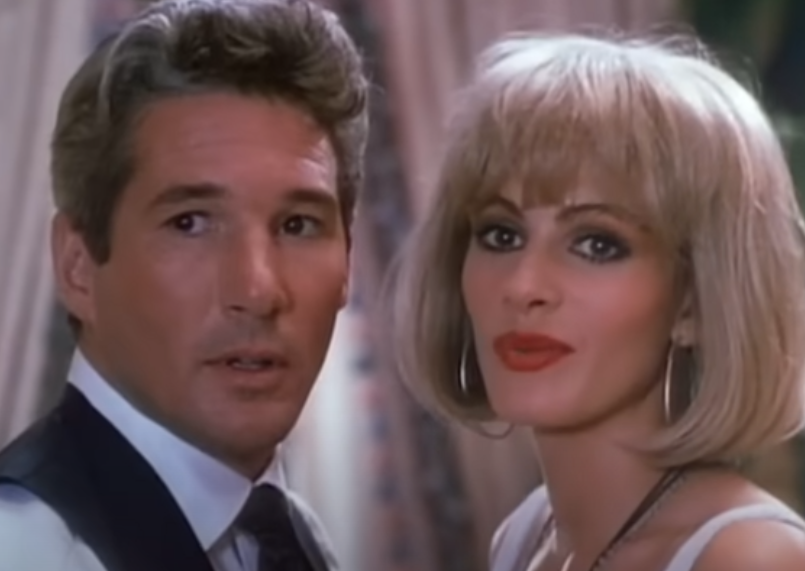 Touchstone, Pretty Woman (1991)
Touchstone, Pretty Woman (1991)
The Matrix (1999)
Box Office Revenue: $467.2 million
Morpheus (Lawrence Fishburne) presents Neo (Keanu Reeves) with a fateful choice in this film that probes the nature of reality and the future of the human race. A highly original story and outstanding production techniques brought the film four Academy Awards in addition to its hefty box office haul.
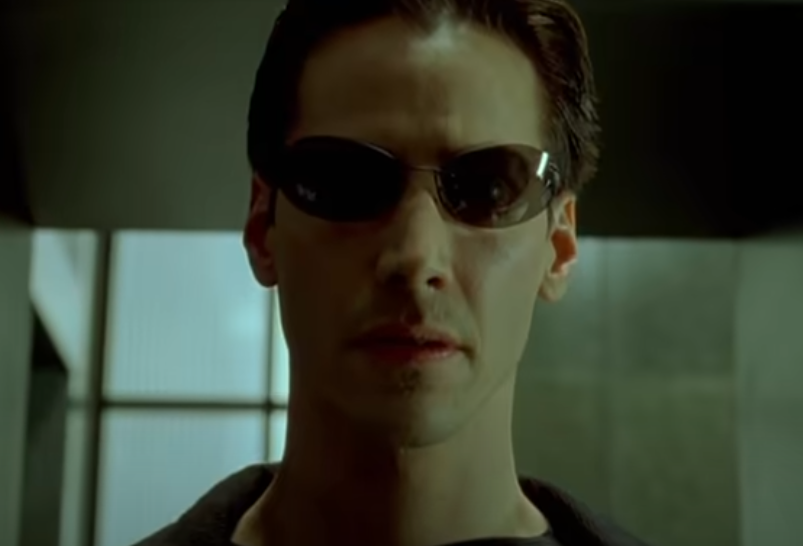 Warner Bros., The Matrix (1999)
Warner Bros., The Matrix (1999)
Home Alone (1990)
Box Office Revenue: $476.7 million
Child star MacCaulay Culkin foils two burglars (Joe Pesci and Daniel Stern) after his family accidentally leaves him at home for the holidays. Written by John Hughes and directed by Chris Columbus, the film has since evolved into a Christmastime family classic.
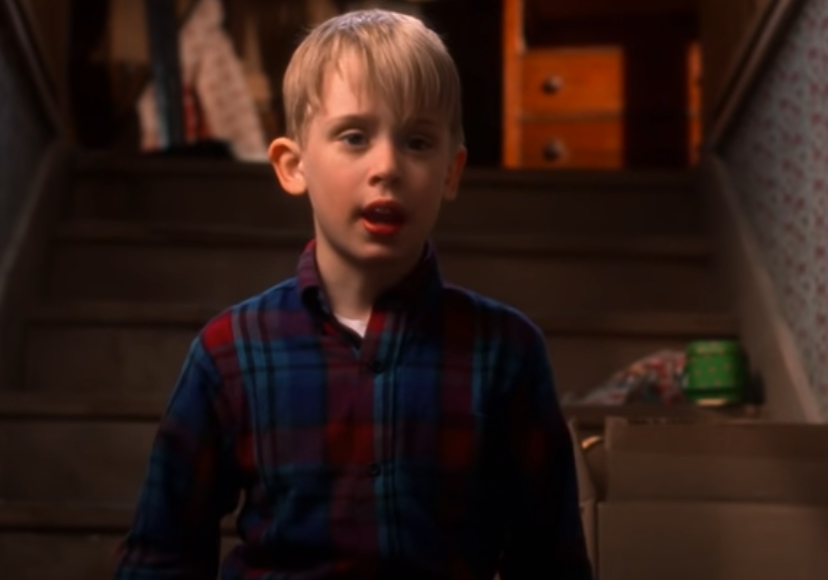 Twentieth Century, Home Alone (1990)
Twentieth Century, Home Alone (1990)
Saving Private Ryan (1998)
Box Office Revenue: $481.8 million
Steven Spielberg’s intense and memorable reenactment of the Normandy Campaign of WWII was an instant blockbuster. The blistering opening sequence made a particular impression on filmgoers.
 DreamWorks, Saving Private Ryan (1991)
DreamWorks, Saving Private Ryan (1991)
Twister (1996)
Box Office Revenue: $494.5 million
Big-budget disaster films have always drawn the public’s fascination and Twister was no exception. The story of a group of storm chasers who catch up to the biggest tornado on record starred Helen Hunt and Bill Paxton.
Toy Story 2 (1999)
Box Office Revenue: $497.4 million
The outcome of a notoriously difficult and chaotic production schedule, Toy Story 2 performed the improbable feat of surpassing its forerunner at the box office and with critics. The John Lasseter-directed film received numerous awards and accolades, including an Oscar for Best Original Song (Randy Newman’s “When She Loved Me”).
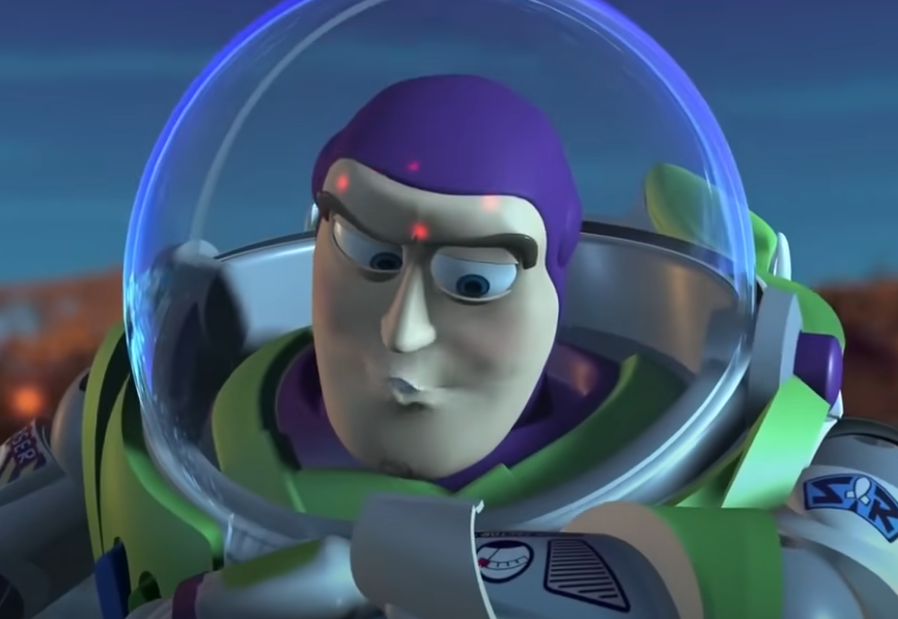 Walt Disney, Toy Story 2 (1991)
Walt Disney, Toy Story 2 (1991)
Aladdin (1992)
Box Office Revenue: $504 million
This Disney classic about Aladdin and his magic lamp was another in its series of 90s box office breakthroughs. Co-directed by John Musker and Ron Clements, the film became the highest-grossing animated feature of all time, until it was surpassed by The Lion King (1994).
Ghost (1990)
Box Office Revenue: $505.7 million
Patrick Swayze and Demi Moore starred in this supernatural romance that became the third-highest grossing film ever at the time of its release in 1990. Whoopi Goldberg claimed an Oscar for Best Supporting Actress with her role as a reluctant medium.
Terminator 2: Judgment Day (1991)
Box Office Revenue: $520.9 million
The original Terminator (1984) was an unheralded hit; that was not the case with the long-awaited Terminator 2: Judgment Day. A more menacing terminator and a role-reversal for Arnold Schwarzenegger were the new wrinkles added by director James Cameron.
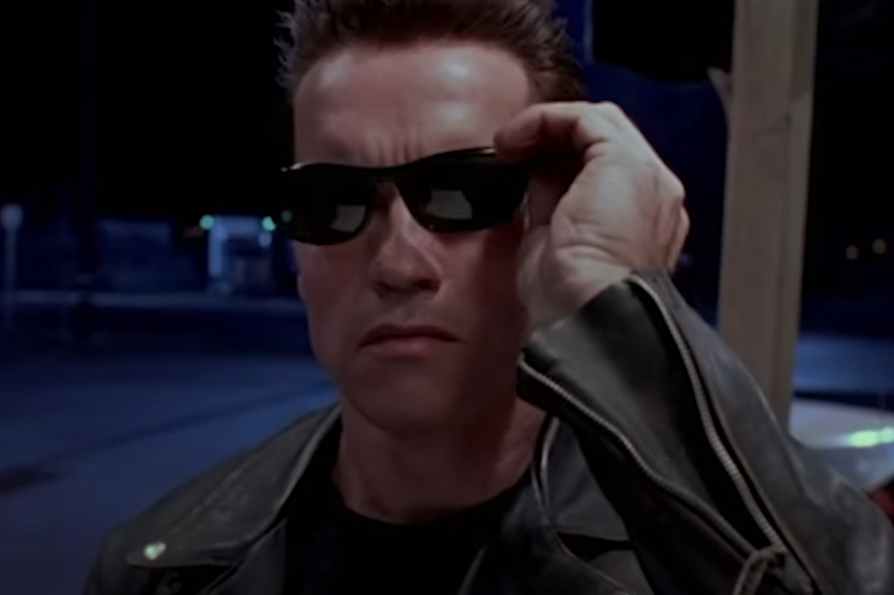 Pacific Western, Terminator 2: Judgment Day (1991)
Pacific Western, Terminator 2: Judgment Day (1991)
Armageddon (1998)
Box Office Revenue: $553.7 million
As a world-ending asteroid hurtles toward Planet Earth, a team of tough-as-nails oil drillers, headed by Bruce Willis, suit up to save the day. Directed by big-budget master Michael Bay (Transformers; Pearl Harbor), Armageddon drew more praise for its entertainment value than its scientific accuracy.
Men In Black (1997)
Box Office Revenue: $589.4 million
Tommy Lee Jones and Will Smith star as the title characters in this riff on the public’s fascination with government secrecy and space aliens. The film’s humorous script and fascinating extraterrestrial creatures were the main factors in its popular appeal.
The Lost World: Jurassic Park (1997)
Box Office Revenue: $618.6 million
Steven Spielberg’s follow-up to Jurassic Park was praised for its strong special effects and realistic dinosaurs. The Lost World had great ticket sales and impressive visuals—yet artistically, the film was regarded by most critics as a disappointment.
 Universal, The Lost World: Jurassic Park (1997)
Universal, The Lost World: Jurassic Park (1997)
The Sixth Sense (1999)
Box Office Revenue: $672.8 million
The performance of 11-year-old Haley Joel Osment as a small boy haunted by a series of disturbing visions was the core of this eerie psychological thriller. Bruce Willis and Toni Collette are the somber co-stars of the film directed by M Night Shyamalan.
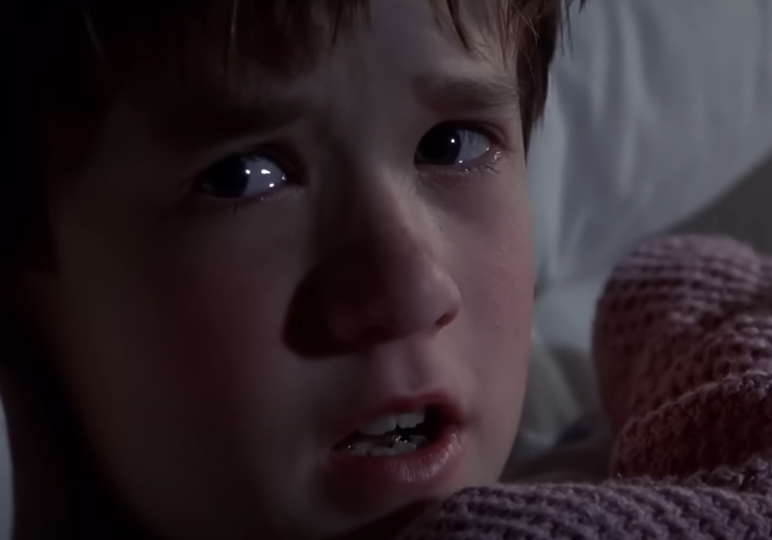 Spyglass Entertainment, The Sixth Sense (1999)
Spyglass Entertainment, The Sixth Sense (1999)
Forrest Gump (1994)
Box Office Revenue: $678.2 million
This life retrospective of the amiable—but not very bright—title character has become a baby-boomer favorite. The film’s lighthearted moments intermingled with memorable historic incidents were a highly original concept at the time. Forrest Gump won six Oscars that year, including Best Film, Best Director (Robert Zemeckis), and Best Actor (Tom Hanks).
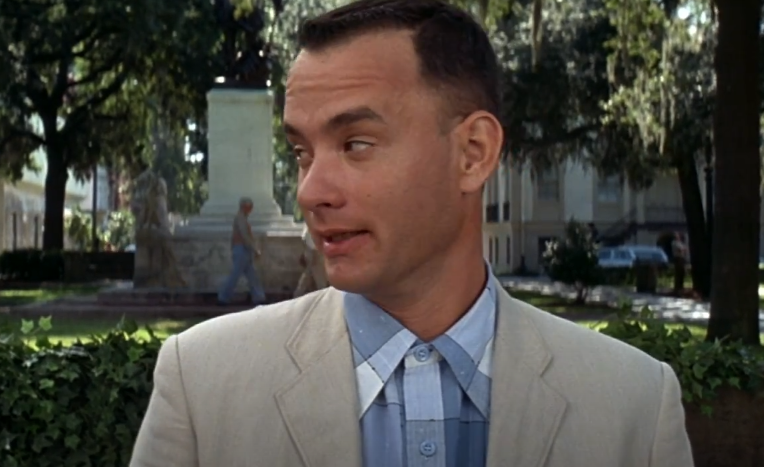 Paramount, Forrest Gump (1994)
Paramount, Forrest Gump (1994)
Independence Day (1996)
Box Office Revenue: $817.4 million
Earth is invaded by extraterrestrials in this film that was part of a wave of big-budget disaster movies in the late 90s. Will Smith and Bill Pullman co-starred and Roland Emmerich directed, as the film became the second-highest grossing production of all time.
 Twentieth Century, Independence Day (1996)
Twentieth Century, Independence Day (1996)
The Lion King (1994)
Box Office Revenue: $968.5 million
The hero’s journey of Simba the lion to his ancestral throne captured the hearts of filmgoers of all ages in this animated musical. Disney used traditional drawing techniques aided by computer technology and an acclaimed soundtrack to make The Lion King the biggest-grossing animated film until Finding Nemo (2003).
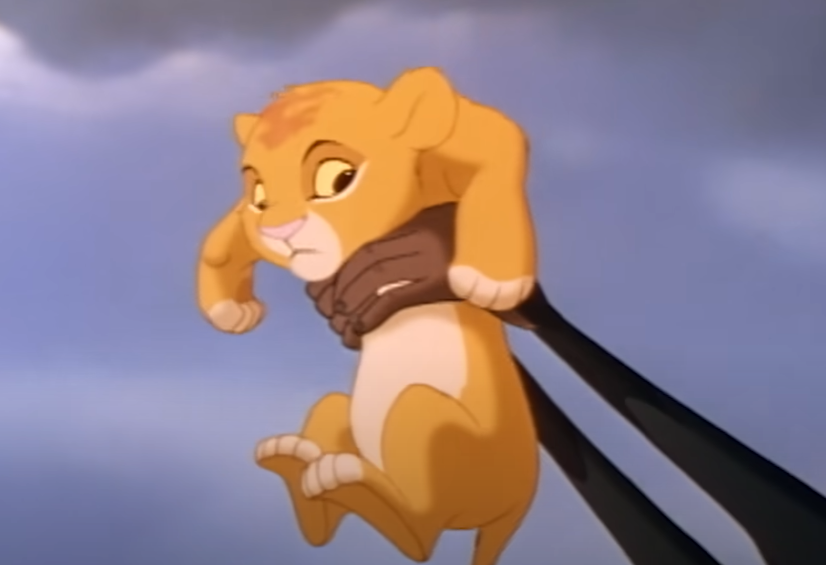 Walt Disney, The Lion King (1994)
Walt Disney, The Lion King (1994)
Star Wars: Episode I – The Phantom Menace (1999)
Box Office Revenue: $1.046 billion
This was George Lucas’s long-awaited resumption of the series that became a film phenomenon in the late 70s. A new storyline and cast of characters met with mixed reactions from audiences, but there was no denying the enduring public interest in the film after a 16-year hiatus.
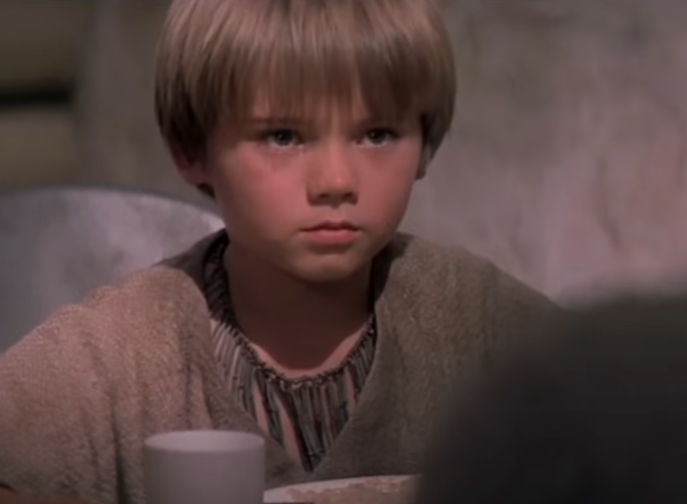 Lucasfilm, Star Wars: Episode I - The Phantom Menace (1999)
Lucasfilm, Star Wars: Episode I - The Phantom Menace (1999)
Jurassic Park (1993)
Box Office Revenue: $1.058 billion
Theme park operators fulfill their wish for an “up close and personal” encounter with dinosaurs in this impressive Steven Spielberg adaptation of Michael Crichton’s novel. Accompanied by an unprecedented merchandising campaign, the film’s realistic visual and sound effects helped it take three Academy Awards.
Titanic (1997)
Box Office Revenue: $2.264 billion
James Cameron’s Titanic is one of the most ambitious films ever produced. The epic tragedy combined obsessive attention to historical detail, a sizzling romance, and spectacular visuals in order to become the first movie to gross a billion dollars. The film won 11 Academy Awards, including Best Picture and Best Director (Cameron).
Yet, for all the film’s accolades, there’s one heart-wrenching scene that director James Cameron admits went too far. In one of the scenes where people are rushing to board the lifeboats, trying to escape the sinking ship, First Officer William Murdoch refuses to let a wealthy man pay his way through. Murdoch, who had previously accepted the man’s bribe, throws it back in the man’s face. It seems like the character regains his misplaced honor—until he shoots another passenger who tries to cut the line for the lifeboats. Horrified by what he’s done, Murdoch turns the gun on himself.
It makes for a tense, dramatic scene—but in real life, we don’t know the details of Murdoch’s final moments. Understandably, his descendants were angered by how Cameron chose to portray him. Cameron later admitted that he got “a little carried away” with the scene and apologized to the Murdoch family.
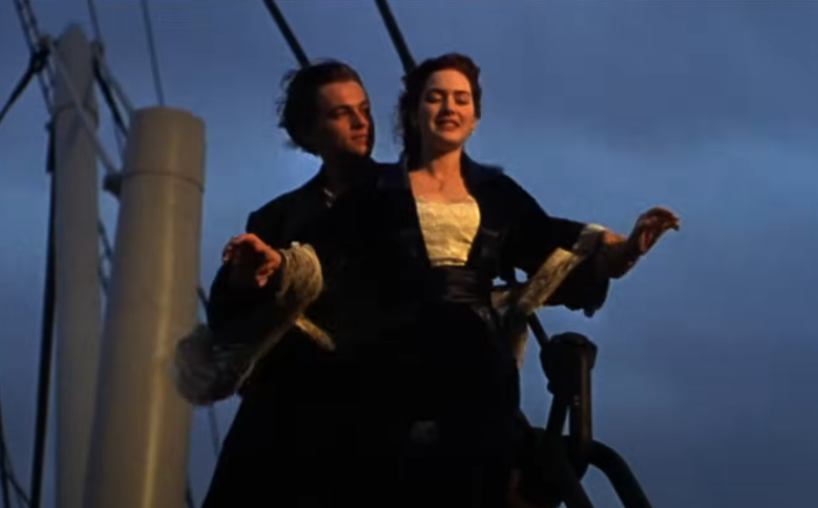 Twentieth Century, Titanic (1997)
Twentieth Century, Titanic (1997)

